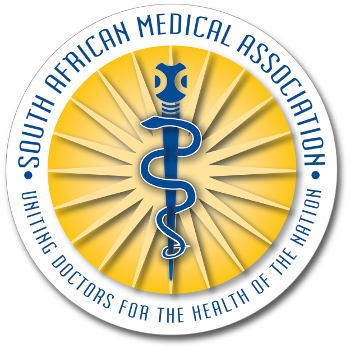The South African Medical Association (SAMA) followed intently the Medium-Term Budget Policy Statement (MTBPS) speech presented by Enoch Godongwana, the Minister of Finance on 1 November 2023, which outlined critical aspects of the country's fiscal policy and its implications for the healthcare sector. The organisation noted that the health sector was allocated R268.4 million for the 2024/25 year with an annual growth of 3.1% between 2023/24 – 2026/27. It is worth mentioning that this forecasted budget growth falls below current inflation levels.
The MTBPS noted that “While additional funding is provided to cover wage increases, baseline reductions are being implemented as part of fiscal consolidation”, further adding that “To minimise negative effects, the health sector will need to improve efficiency in areas such as overtime payments, medical supplies and security services, and to delay infrastructure projects”. While these measures may sound as fiscal prudence, the implications of these measures in the healthcare sector will be dire. There are significant staff shortages at numerous facilities in the country with doctors having to work overtime, security measures continue to be a concern for medical professionals and the country’s healthcare infrastructure remains a concern. Budget reductions in these areas will impact severely on healthcare services to the public.
• Cutting spending on infrastructure projects goes against the government’s plan to introduce National Health Insurance (NHI), which would require major improvements to public healthcare facilities.
• The impact of lack of fiscal growth on the healthcare sector, including power cuts, logistics issues, high inflation, rising borrowing costs, and a weaker global economic environment.
• Healthy fiscal growth is necessary to expand the healthcare budget sustainably. Economic growth generates tax revenue, which forms a significant portion of the government's budget. A robust economy provides the resources needed to invest in healthcare infrastructure, recruit healthcare professionals, and expand healthcare services.
• The Minister acknowledges the importance of directing fiscal resources towards key priority areas, including frontline services such as healthcare. However, his statement does not explicitly acknowledge that the public healthcare sector is under-resourced and the need for a substantial increase in the health budget – rather proposing cutting spending on overtime payments to medical professionals who are already under-staffed, medical supplies, security services and delaying infrastructure projects. All these elements are currently impacting access to quality healthcare services.
• The Minister has allocated funds towards salary increases in the healthcare sector, which is a welcome move. This however falls short of our expectations, as SAMA. In a report produced in October 2023, SAMA showed that there has been a growing decline in medical practitioners’ salaries (including healthcare workers in general) since 2019.
• In many countries, including South Africa, there is a shortage of healthcare professionals, particularly in underserved areas. Of concern is that the Minister does not mention the need for more funded posts in healthcare.
• Social Determinants of Health: The speech acknowledges the negative impact of slow economic growth on the fiscal outlook and public finances but does not explicitly discuss the link between economic growth and social determinants of health.
• The Impact of Loadshedding on the Healthcare Sector. Load-shedding has serious consequences for healthcare facilities, as they rely on electricity to power essential medical equipment, lighting, and heating or cooling systems.
• Interruptions in electricity supply disrupt healthcare services, endanger patients, and affect the overall quality of care. Moreover, load-shedding impacts the storage and preservation of vaccines, medications, and laboratory samples, which are critical components of healthcare service delivery.
• Corruption in the Healthcare Sector. The impact of corruption on healthcare includes the misallocation of funds, embezzlement, and suboptimal healthcare service delivery due to resource diversion. This remains a challenge that is impacting access to quality healthcare services.
• The National Health Insurance. The speech does not explicitly discuss the readiness of the Department of Health to implement the NHI. However, the NHI's implementation is closely tied to the overall budget allocation for healthcare. Proposed delays on infrastructure projects will impact the implementation of NHI.
It is SAMA’s position that there will be dire consequences on the health outcomes of the country where annual fiscal allocations to the health budget are below inflation levels. SAMA urges the government to prioritise and ringfence the healthcare in budget allocations to avoid the continued crippling of health services in the country.
